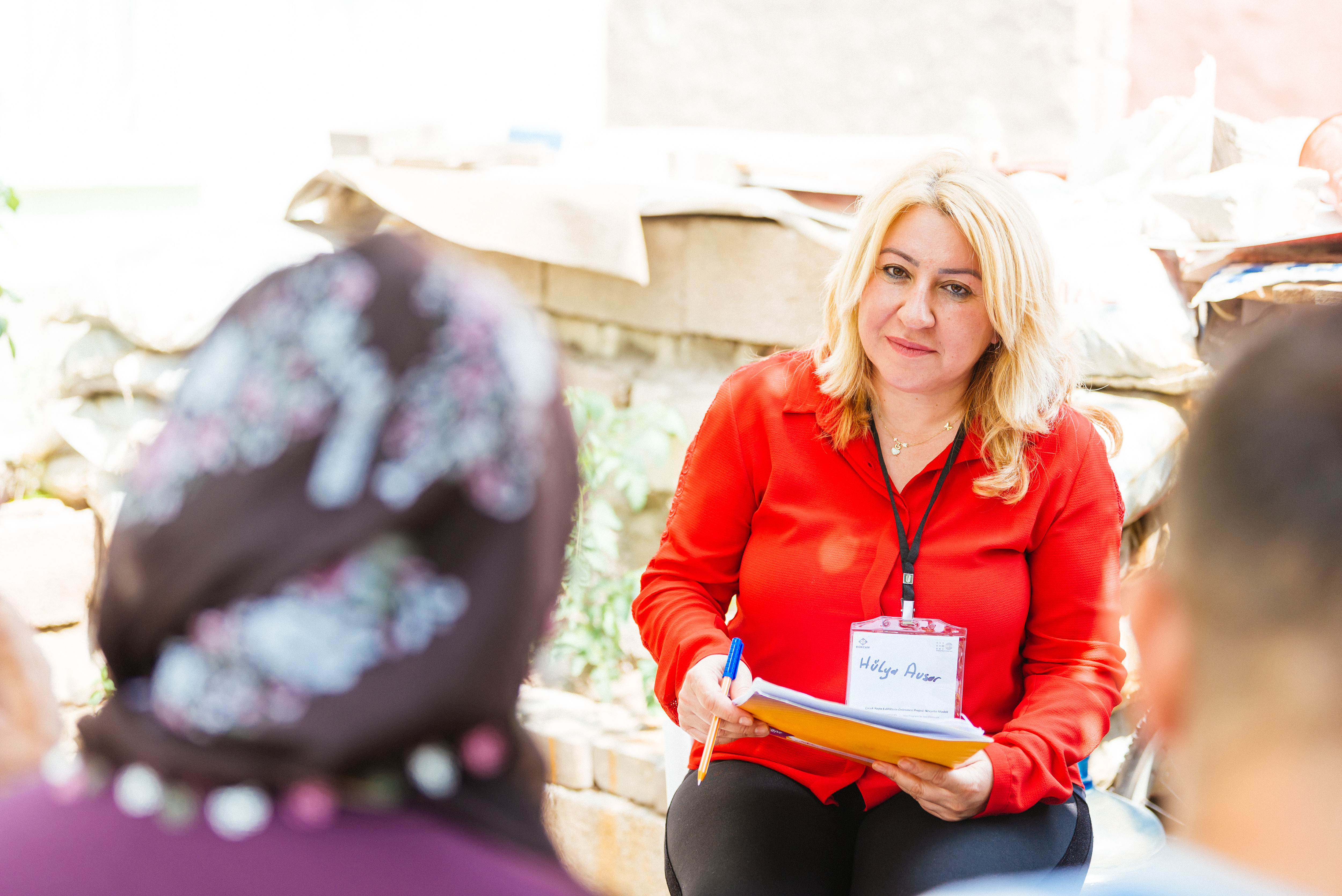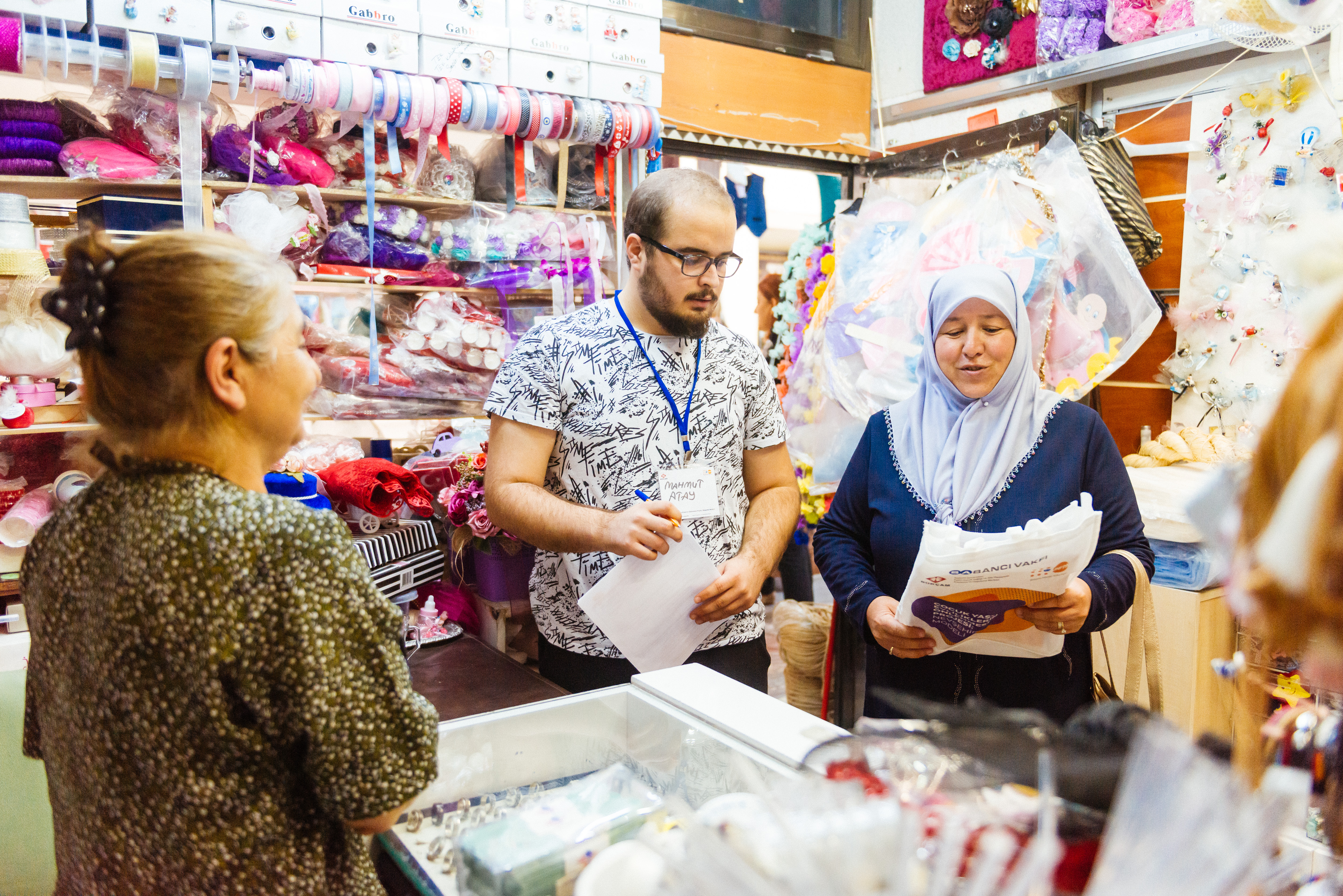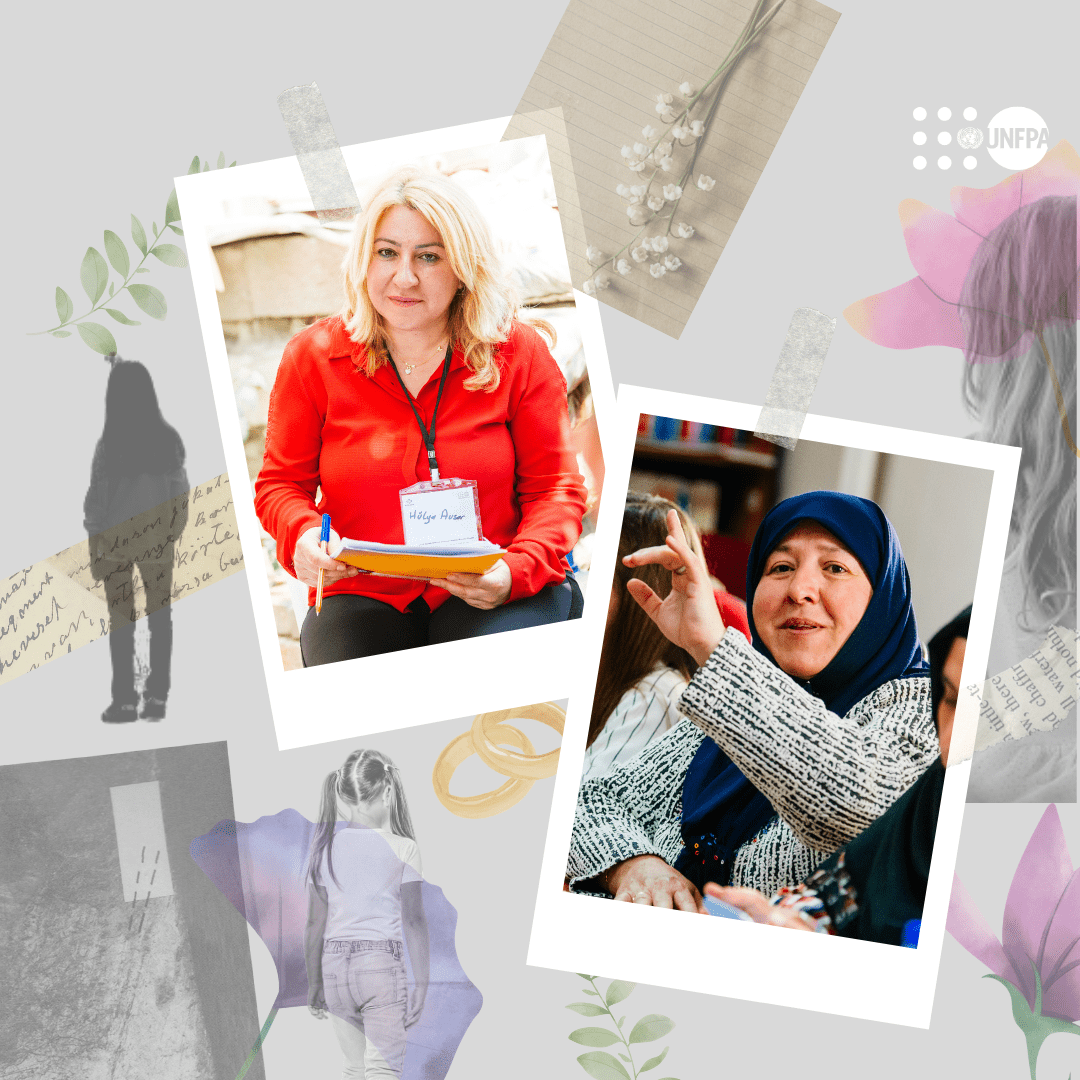In Turkey, one in five women who are currently 20-49 years old, married under the age of 18. One-third of girls who got married before the age of 18 also became a mother at child age. Nuray and Hülya are only two of them who had to get married at early ages although they didn’t want to. Now, they are on the front lines to fight against child marriage to protect girls from the same fate.
Nuray was 14 when her marriage was arranged. Even though her parents resisted this arrangement first by saying that her daughter wanted to go to school instead of being wed, they were convinced to support this marriage anyway. Having had to get married at 15, Nuray tells about those days as follows: “I was just like a sheep for slaughter. You have to go whether you want it or not. I resented my mother and father because they prevented my education life. I think they did not even regret it. I wish I could have had my economic freedom.”
Just like Nuray, Hülya also got married at an early age out of family pressure. She had been subjected to violence during her marriage: “I got beat by my mother-in-law. I was exposed to violence from my husband all the time. It was full of violence. My marriage was no good. I wish we could have been informed, our parents would have understood. Then we would not have been so upset” says Hülya.

Child, early and forced marriage is one of the most harmful practices against women and girls. Turkey, unfortunately, is one of the countries where child marriage is common.
Nuray and Hülya worked as voluntary health mediators in scope of the “Prevention of Child Marriage Project: Nevşehir Model" implemented by UNFPA Turkey with the support of Sabancı Foundation. With door-to-door visits to houses, coffee/tea houses, wedding dress shops and pharmacies etc. they raise awareness among families and tradesmen in Nevşehir about the harmful consequences of early marriage.
Nuray tells us about household visits: “When I first knocked on the door, my first words would be ‘our topic is children and women’. I told them that we are UNFPA’s health mediators and I tried to convince them to listen. Once the door opens slightly, the rest is easy. Even those who do not want to speak at first suddenly start to tell their stories like ‘I experienced this, my sister experienced that, my neighbor experienced this’.”
Having mentioned that they touched so many lives in their visits, Nuray emphasized that the project has changed some things in Nevşehir: “A girl was going to be married in a house. We immediately contacted and spoke to her mother, eventually we convinced her. There were lots of people whom we changed their minds.”

Osman, the husband of Nuray, has also supported the project. Based on his own experience, Orhan thinks that men have an important responsibility here. “I wish we could not have gotten married at such an early age. My wife suffered a lot” he says and continues: “I saw what my wife went through. I do not want the next generations to make the same mistakes as we did. Especially fathers have a crucial role here.”
In the scope of the “Prevention of Child Marriage” project that is implemented by UNFPA with the support of Sabancı Foundation, so far, 19 women health mediators who got married and/or had kids at early ages got trained. With more than 1600 households and over 40 tradespeople visits, health mediators informed local people about the risks and harmful consequences of child marriage. In the project, training sessions were delivered to public institutions and several meetings were held with the aim of establishing an effective prevention and response mechanism. Having ended by the end of 2019, the project will continue with the second phase as of February 2021 both in Nevşehir and Van.
When it comes to the real heroes of this project which has touched on the lives of many, they are no doubt the health mediators, like Nuray and Hülya, who dedicate themselves to end child marriages by going from door to door so that others do not experience the same hardships as they are. As UNFPA, we continue to work to ensure happier and healthier lives for other Nurays, Hülyas and Osmans of the future.


